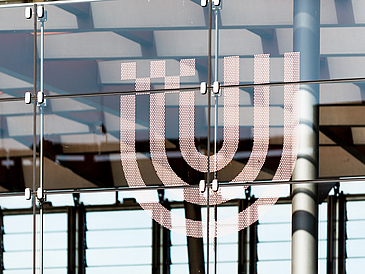Collaborative Research Centers (CRCs) are among the most sought-after grants for researchers at German universities – and that’s why spirits at the University of Bremen are now particularly high: the German Research Foundation (DFG) has decided to support a new CRC in the social sciences at the University of Bremen. The CRC 1342 titled “Global Development Dynamics of Social Policy” is scheduled to start on January 1, 2018. In the first four years it will be funded in an amount of around 11 million euros. But that's not all: The DFG also decided to extend the Transregional Collaborative Research Center (CRC / TRR) 136 “Function-Oriented Manufacturing Based on Characteristic Process Signatures”. CRC / TRR can now continue its successful work with another 9.5 million euros of funding up to 2021.
The President of the University is pleased: “A beacon on the research landscape”
The President of the University of Bremen, Professor Bernd Scholz-Reiter, is more than pleased about the two positive decisions and the acquisition of third-party funding in such high amounts. “For the University of Bremen, this double success is an emphatic confirmation of the DFG's trust in our outstanding research work and strength in cooperation. The funding not only anchors research in socially important fields of knowledge in Bremen, it also opens up good prospects for our early-career researchers. The decisions also illustrate that the University of Bremen acts like a ‘beacon’ on the research landscape.”
How does state social policy develop and change?
The new CRC 1342 deals with the worldwide developments and processes of change in state social policy. Each country handles its social policy differently, and developments in the area of social policy are taking place in very different forms and at different speeds. The DFG grant now gives Bremen researchers the opportunity to examine the respective changes and phenomena in more detail. They want to reach far beyond previous social policy research and act as a catalyst for new geographic, conceptual and analytical approaches. In total, the new CRC will involve more than 70 researchers from the fields of political science, sociology, health sciences, history, geography, computer science and law.
Production Engineering CRC “Process Signatures” enters the second funding phase
The transregional Collaborative Research Center “Function-Oriented Manufacturing Based on Characteristic Process Signatures”, which has already been carrying out successful research over the past four years, submitted a convincing application for continued funding and has now been rewarded with follow-up funding amounting to 9.5 million euros up to 2021. The concept behind so-called “process signatures” is now to be further developed in the direction of industrial application. Process signatures are a new approach in materials-oriented manufacturing, by means of which basic processes in the production of highly stressed components – such as gears for wind turbines – are concretized in a consistent representation. Among other things, the long-term goal is to use the research results to significantly improve the quality and service life of such components.

